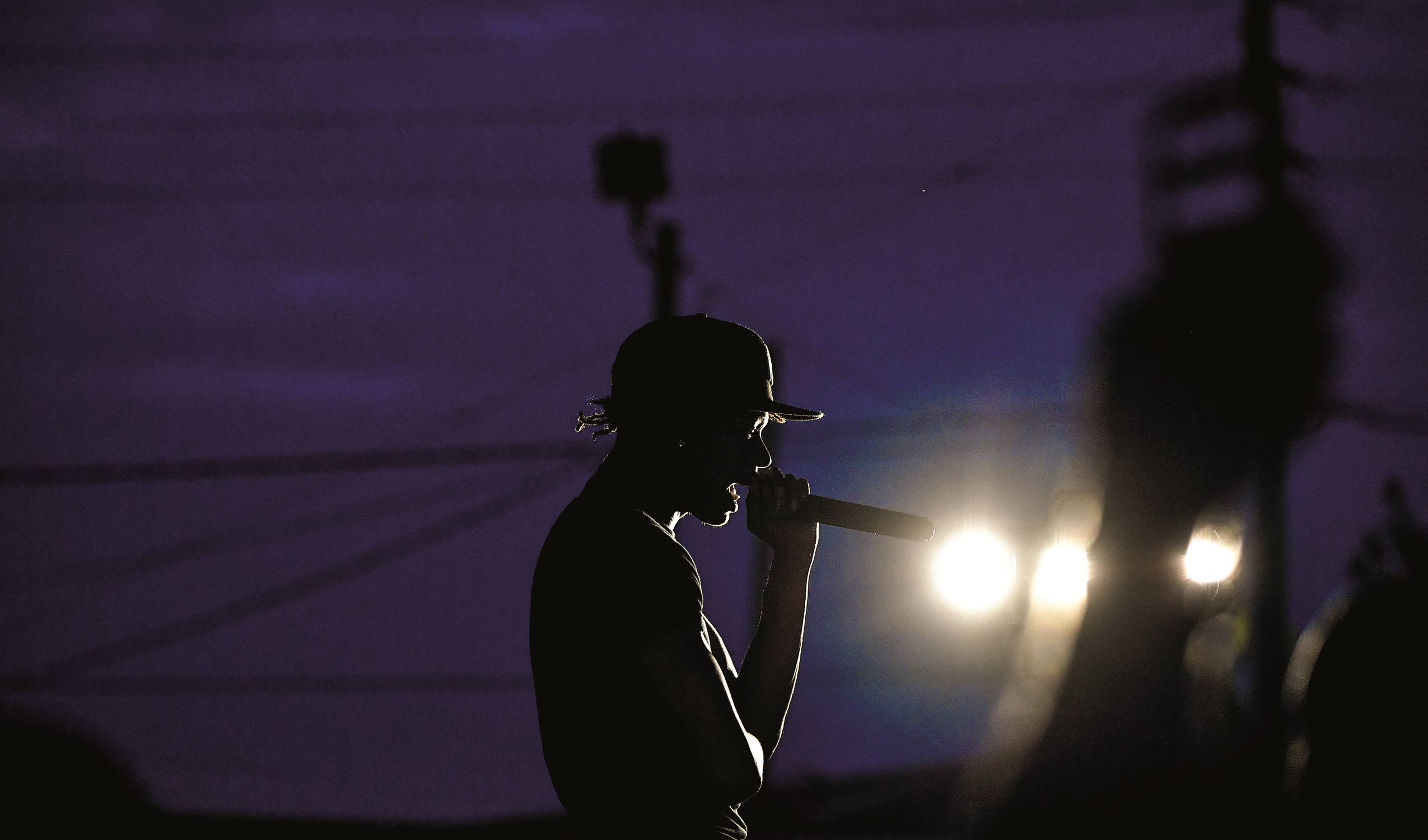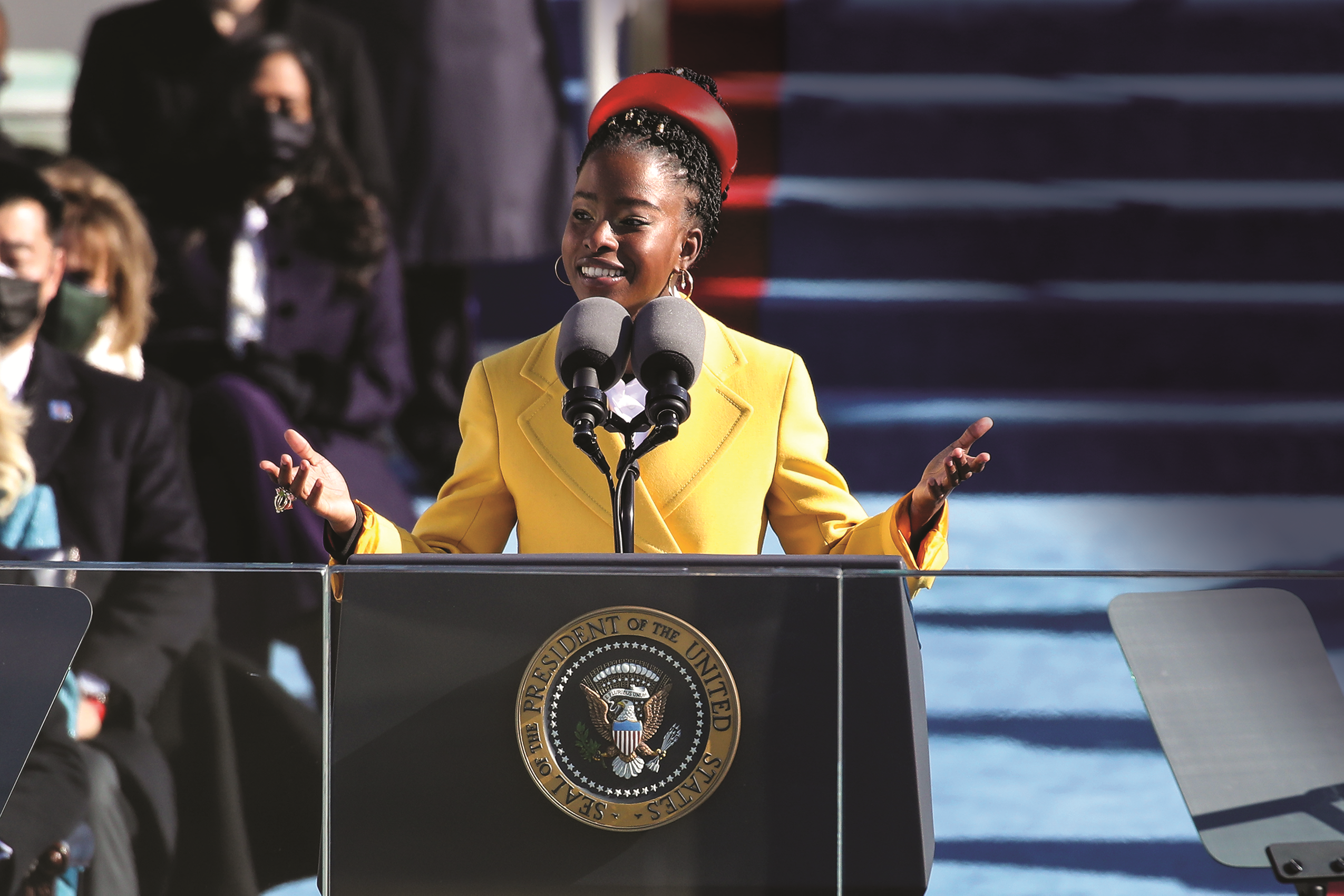
Rob Carr / Getty Images – Say My Name
In a year of tragedy and political upheaval, a renewed sense of social justice and racial equality came to the forefront of society and our industry, which can do far more in promoting greater inclusivity and diversity. Here, Lil Baby performs onstage during Juneteenth Voter Registration Concert & Rally at Murphy Park Fairgrounds on June 19, 2020, in Atlanta.
“How are you doing?”
Far and away the most difficult and loaded question of 2020 … and now, 2021, too.
Answering a question with a question is bad but: “Ummm, this week? Last week? Last month? Today? Or three hours ago? Or right this moment?”
On March 2, after I went to the grocery store and purchased enough food and drinks to last three months and hunkered down at my place and planned out the meals I was going to make daily, I searched YouTube to find the best acoustic guitar lessons. I was going to learn guitar as “the great reset” was coming. We now all know the story: Europe was shutting down and closed, people were singing songs from their balconies, stuck inside unable to leave their apartments and I was searching YouTube for guitar lessons with the idea that I was going to play “Live Shows” to my friends on “Houseparty” (a short lived social app). And by March 13 the world shut down to COVID.
We wouldn’t find out until weeks later that on March 13, Breonna Taylor, a Black woman and first responder in Louisville, Ky., was killed by police.
We learned in March that the previous month, almost one year to the date of this magazine being published Feb. 22, that a young Black man named Ahmaud Arbery went for a run and was gunned down, killed by two wannabe “Keystone Cops” playing vigilante. As the stay-at-home orders kept us in place, my groceries were running low, but to join in a global community on May 20, 2020, we would collectively walk out of our confinement to our homes from lockdown and go for a run with Ahmaud Arbery in solidarity to remember his life meant something.
I soaked in the California sun and breathed in the air deep into my lungs, thankful that the air quality in Los Angeles that day was fine, and inhaled, thankful that COVID-19 was nowhere in sight as I exhaled through my KN95 mask.
How are you doing?
I’m OK.
Five days later, on May 25th, a Black man “birding in Central Park” was being harassed by white woman Amy Cooper, who weaponized her skin color, dialed 911 and lied to the operator that she was being assaulted by a black man. Little did we know half way across the country the same day, May 25th in Minneapolis, George Floyd was crying out for his mother and taking his last breath under the knee of a white police officer in Minnesota.
“How are you doing?”
I’m angry, I’m hurt, I’m saddened, I’m disappointed, I’m numb, but I am not shocked.
This is indeed America at its worst. Even during a pandemic, Black people were still getting murdered.
“How are you doing?”
I’m not broken. I’m OK. I’m alive. I’m OK. Yeah, I’m OK.
It’s the accumulation effect that I carry with me … it’s the names we have heard over the decades who have died by the hands of the oppressor.
It’s what Billie Holiday sang about in “Strange Fruit” (see “
Honoring Black Live History”) and it’s the history that the United States has tried to omit and not reckon with.
But thankfully on the days where I may feel the darkest, music provided me moments of joy and happiness.
We shifted from live tours to live virtual tours across Instagram and Twitch to see our favorite artist perform concerts through our laptops, iPads and phones from our couches. We checked in on each other and built a community in the digital space that kept us singing and dancing and believing in humanity.
It was the Live Virtual Productions by the all-black production house Jesse Collins Entertainment and BET award show production that lifted our spirits (see page 30 on JCE’s historic Super Bowl Halftime show with The Weeknd). It was Derrick Jones, better known as DJ D-Nice, spinning classic soul records to get us through the moments where we were in a state of confusion about COVID slogging through the early days of the pandemic as the deaths mounted globally and coupled by the loss of Black lives at the hands of police. D-Nice came to the rescue.
We honored music luminaries like the late Bill Withers and the late iconic exec Andre Harrell who, among many others, passed in 2020.
It was hearing the legends like Stevie, Aretha, Chaka, Marvin, Curtis, Donnie and Otis that reminded us to try a little tenderness.
It was the collective moment in June where two Black women came up with “#TheShowMustBePaused” and in a show of digital solidarity hundreds of thousands of people across the world changed their avatars to black squares.
The world in solidarity took to the streets in unison after the death of George Floyd and loaded the streets as brothers, sisters, cis genders and trans to walk arm and arm and chant “Say Her Name” and” Say His Name” in a show of support that we have never seen in our lifetimes. The world was listening to the same song and the same chorus, “Black Lives Matter.”
How are you doing?
I’m actually feeling hopeful.
And as quick as you can sing like Ray Charles, I had “Georgia, Georgia … Georgia on my mind” on Nov. 3, 2020, and Jan. 5, 2021. America may have begun to find its heart and soul again.
How are you doing?
Things are looking brighter. I’m better.
I spoke too soon.
On Jan. 6, I watched “Americans” & “patriots” storm the Capitol.
How are you doing?
I’m pissed and frustrated because if that had been BLM protestors … well, we know how that would have ended.

Rob Carr / Getty Images – Black Excellence
22-year-old National Youth Poet Laureate, Amanda Gorman, delivering her soul-stirring poem “The Hill We Climb” at President Joe Biden’s swearing-in ceremony on the West Front of the U.S. Capitol on Jan. 20, 2021, in Washington, D.C.
On Jan. 20, 2021, I watched a young Black woman Amanda Gorman bring hope through her poetry to millions of people and I felt like everything thing was going to be OK.
How are you doing?
I feel like the future just might be changing and we are walking towards the light.
On Jan 29, 2021, cops pepper-sprayed a 9-year-old Black girl in Rochester, N.Y.
So here is where I am today: All we can truly do is hold others accountable and call out racism and bigotry and inequities when we all see them. There are no more excuses.
This issue is a celebration of Black artists, Black execs, working together with allies to make sure we do our part as a collective. The directories of Black production companies and businesses flow through the following pages of this issue. Sit back and learn about some incredibly talented people who happen to be Black and let’s get excited about the future, working hand in hand to diversify an industry that often times has not been inclusive of roadies of colors, Black art directors, Black executives and Black musicians as a whole. No more excuses, the solution is within you.
PS. Amy Cooper, you know the woman who weaponized her whiteness against a Black man in Central Park? Well, her charges were dismissed …
How are you doing?
After working on this issue with a group of allies I’m doing OK on this roller coaster.
The acoustic guitar lessons can wait. We have work to do, people.


